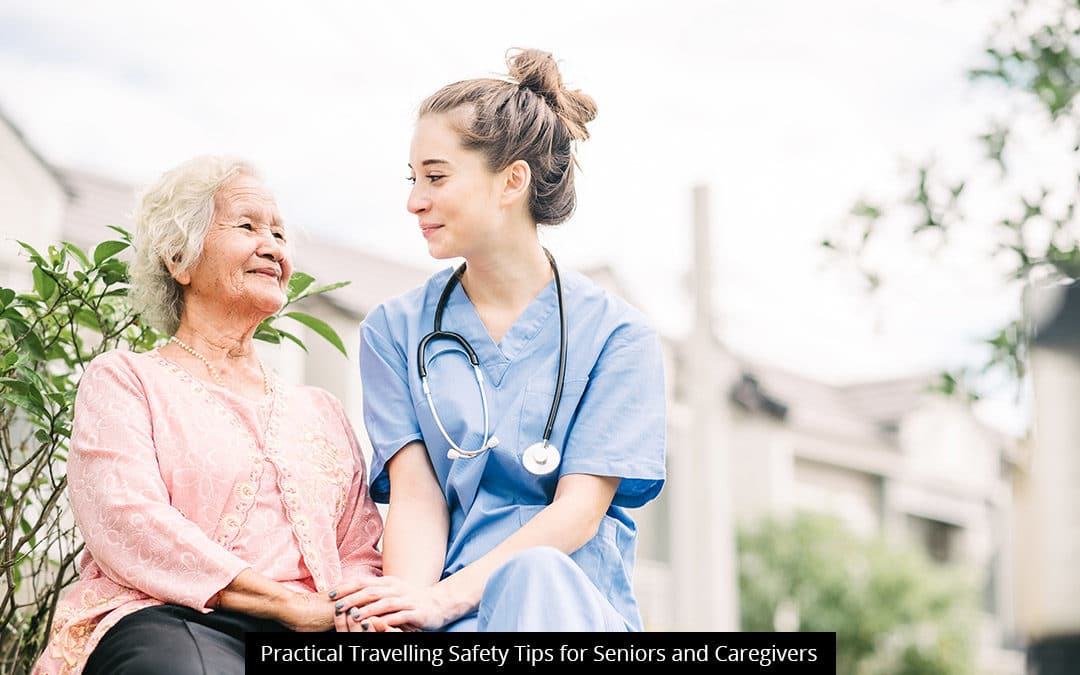Many seniors look forward to having more time to travel after retirement. Working full-time, raising a family, and a host of other responsibilities often get in the way of going on trips and excursions. Even though older adults tend to have more time for travel after retiring, there are other factors to consider which can make the process a little more challenging for seniors.
Things To Consider When Travelling With Seniors
In order to help keep seniors safe and comfortable when travelling, there are several factors to take into account before departure. Some possible items to think about include:
- Existing health conditions
- Medical clearance
- Suitable accommodations
- Flexible itinerary
- Bringing supplies
- Medications
- Implementing regular routines
- Diet
- Discretion
- Planning
Existing Health Conditions
It is no secret that increased health complications are a common and natural occurrence with age. A large portion of seniors are dealing with a variety of ailments and health issues that can make travel more difficult and risky. It is a good idea to idea to take stock of current health issues and think about how they may impact travel. Presenting these issues to a doctor or healthcare professional before setting out is also a recommended practice.
Medical Clearance
Getting medical clearance from a doctor before travelling can help provide peace of mind for seniors and their travel companions. This can help determine if the chosen destination is appropriate for travel, and if any vaccinations or medications are applicable.
Suitable Accommodations
Booking accommodations in advance is definitely advisable and inquiries into the layout of the facility can help establish if they are suitable for seniors’ mobility. For example, if the individual travelling has difficulty getting up and down stairs, you probably don’t want to book a room on the top floor of the hotel. Also, it is practical to book accommodations close to planned activities to minimize transportation complications.
Flexible Itinerary
Keeping plans loose and flexible cannot be recommended enough to prevent over exertion. Trying to pack too much in can quickly result in exhaustion or worse. Plans can be easily revised and should be adapted to how seniors are feeling each day.
Bringing Supplies
Obtaining the basic essentials and preparing necessary documents prior to departure is a good idea to avoid reaching the destination and realizing what you are looking for is not available. This can include things like:
- Comfortable clothing
- Medications
- Incontinence supplies
- Sunscreen
- Medical information
- Insurance
- Travel documents
Medications
Ensure prescriptions are filled to last the duration of the trip. It is a good idea to keep medications in the original prescription bottles while traveling in case complications arise. Bringing a copy of the actual prescription is also useful in the event of loss, theft, or changes in travel plans.
Implementing Regular Routines
Even though the location has changed, keeping on schedule with daily routines can help prevent stress and anxiety. For example, sticking with normal times for bed, wake up, and medication administration can help ease the transition to a new environment. When traveling to different time zones it is recommended to go to bed early the first night and try to sleep through to the morning to get back on schedule.
Diet
Some destinations are riskier than others when sampling the local cuisine. Seniors in particular tend to have more sensitive digestion when trying new foods. Part of the fun of travelling is often experiencing a new culture, but making smart decisions can help avoid ruining your trip. It is probably best to avoid too much spice and excessively rich foods, and water from the tap or served in a pitcher.
Discretion
Waving around smartphones, jewellery, and other valuables should be avoiding when travelling to an unfamiliar destination. Seniors are often considered easy targets for thieves, and should act with conscious discretion. When going out for day trips there is no need to advertise absence with a “Please Make up Room” sign on the door.
Planning
Planning and preparation is highly recommended when travelling with seniors. This really helps prevent unforeseen complications and improves the ability to deal with unexpected issues when they do arise. Being properly prepared is the first step towards safe and comfortable senior travel.




